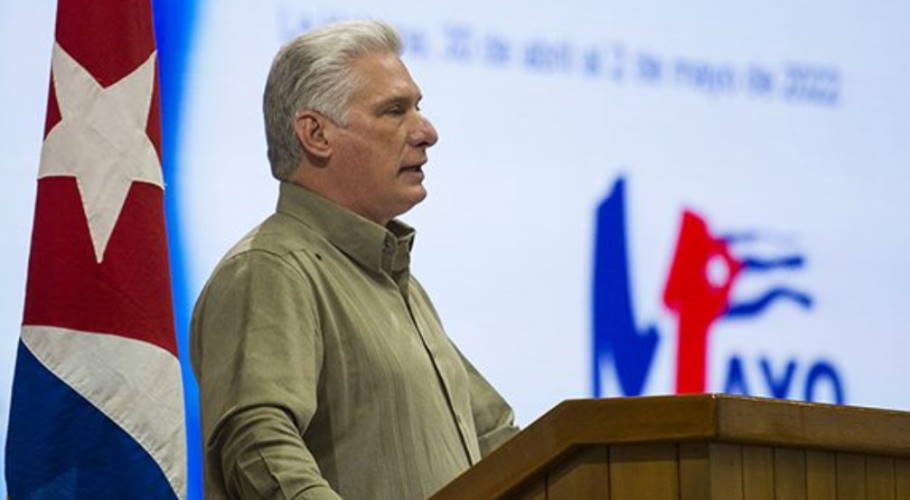In Cali, the Fanalca company, which assembles motorcycles and manufactures bodywork, opened a line to produce solar panel uprights, and the growth prospects for electric vehicles that should reach 600,000 by 2030 – today it is at 6,000-, thus opening up a spectrum of new productive activities in the country.
(Read: Offshore wind farms begin with project and auction).
With these examples, the Minister of the Environment, Carlos Eduardo Correa, invited businessmen to join the carbon neutral policyl for the benefits it can generate in terms of business.
The official hopes that in July, before the end of the Government, 1,000 companies will join this movement.
In October 2021, when it added a hundred, the next goal was to reach 500, and until yesterday there were already 568 companies that were already on the path, Correa said.
“We congratulate this great effort and the vision that each one of these organizations has, convinced that more and more small, medium and large companies will join“, he pointed.
The panorama was presented yesterday at an event in which representatives of the private sector shared their successful experiences around the reduction of greenhouse gas emissions (GHG), which have materialized thanks to the National Carbon Neutrality Program, which allows organizations to initiate and accompany their path towards zero emissions.
Minister Correa explained that business opportunities are “served” and that public policy has been key for companies to join.
Nicolás Uribe, president of the Bogotá Chamber of Commerce, highlighted the importance of the strategy but was emphatic that small and medium-sized companies should be motivated and understand the importance of being part of it.
THE EXPERIENCES
Juanita Duque, director, researcher and senior consultant at the Universidad de los Andes, analyzed how action on climate change can bring advantages such as operational efficiencies. “Companies are addressing the issue of climate change as a business priority and there are studies that say that those who attend to their socio-environmental materiality rigorously have a 40% better financial performance than those who do not.”, he expressed.
As an example, he cited that “in the RedEs-CAR model, which is a model similar to the Carbon Neutrality model promoted by the Ministry of the Environment, the results show that with the reduction of CO2 emissions, the companies achieved an interesting reduction, equivalent to removing from circulation more than 12,000 cars annually and generated a net present value of $16.2 billion, so it really is a business.”
The expert pointed out that more and more markets demand to demonstrate that they are working on these issues and that is the example of Tosh, the Nutresa brand that she has found in the sustainability a positioning strategydifferentiation and access to new customers.
Likewise, Duque cited the case of Grupa Sura, Bancolombia and Celsia with the sustainable mobility model with Muverang that with electric skateboards and cars has affiliation systems that dematerialize property. “This changes the paradigm of production and consumption and opens new market opportunities and if this were not profitable it would not scale”, commented the expert in her presentation.
(Besides: How to increase the useful life of garments and help save the planet).
Juanita Duque also drew attention to how issues related to carbon neutrality are also now essential for access to capital and insurance. “The financial sector is realizing that this is a systemic risk and that it cannot afford to finance a company that is not committed to a carbon neutrality path.“, said.
Regarding the above, he mentioned the experience ofe Grupo Argos and Bancolombia that work with this focus and to the extent that there is a good performance by the company, the loan rate is cheaper, which obviously generates a favorable impact on the business.
The foregoing, without taking into account what it represents in the field of risk management in terms of reputation and in the relationship with interest groups.
In the event, a forum was held in which representatives of several companies, from various sectors, shared what it has meant to them move towards carbon neutrality.
Forjas Bolívar of the metalworking industry, is a metalworking company with more than 50 years in the market that provides material transportation services to the cement and sugar industries.
Laura Serna Restrepo, representative of this company, indicated that moving towards carbon neutrality has been a differentiator and strengthens competitiveness, while leading to conscious capitalism, thinking not only of industry indicators, but also of reducing the carbon footprint. carbon.
(Read: Colombia is on the verge of reaching 1,000 electric buses).
“In our materiality analyses, in order to align with our clients, we have found many opportunities in energy and process efficiency. We have found steels – our main raw material – with different heat treatments that help to receive emissions from gas consumption”, he expressed.
BRIEFCASE














